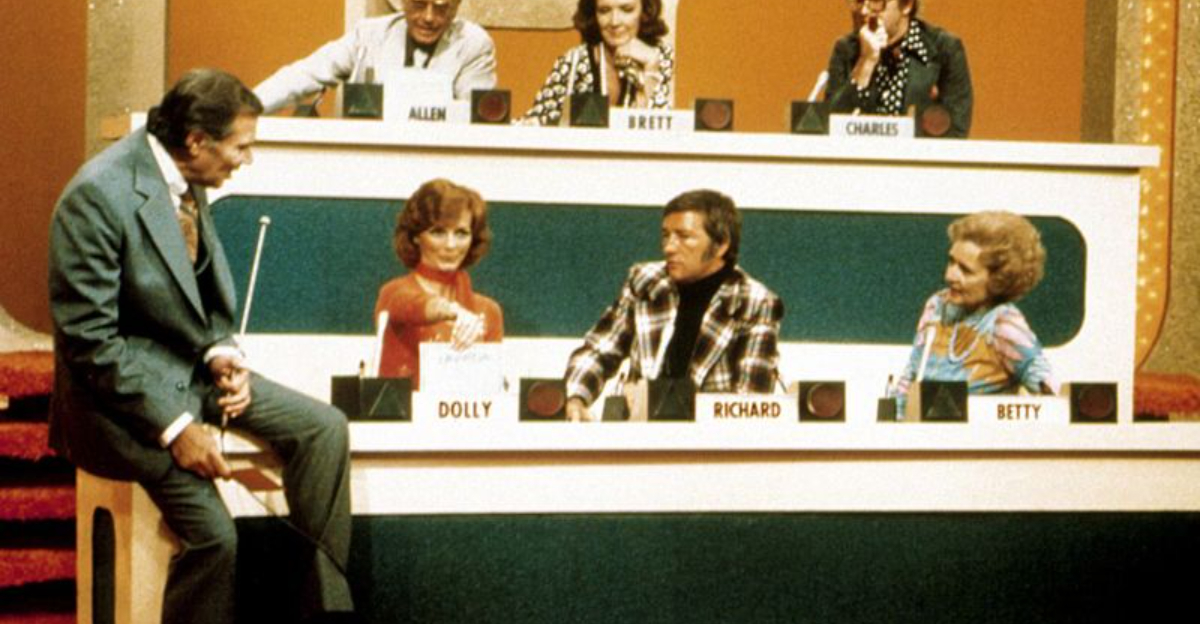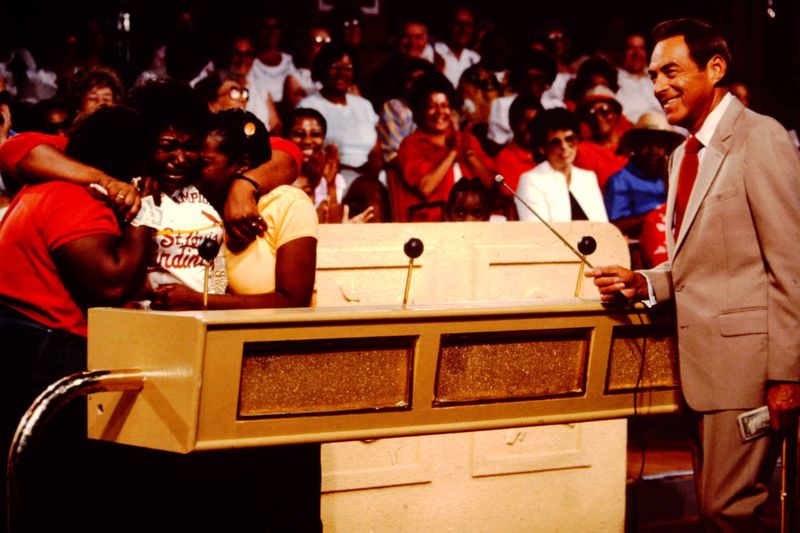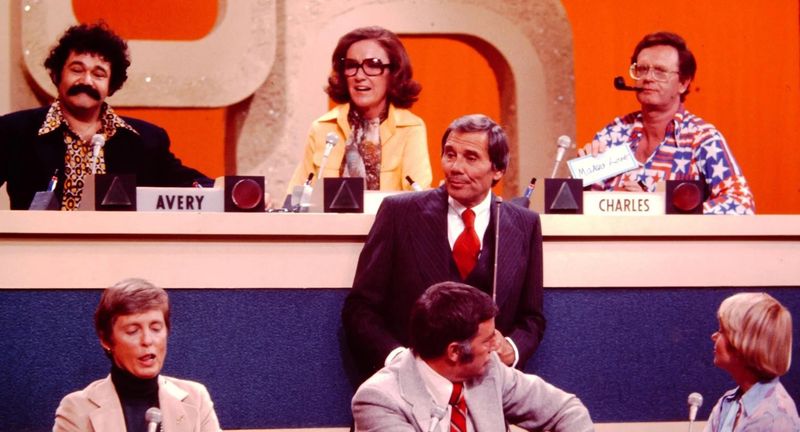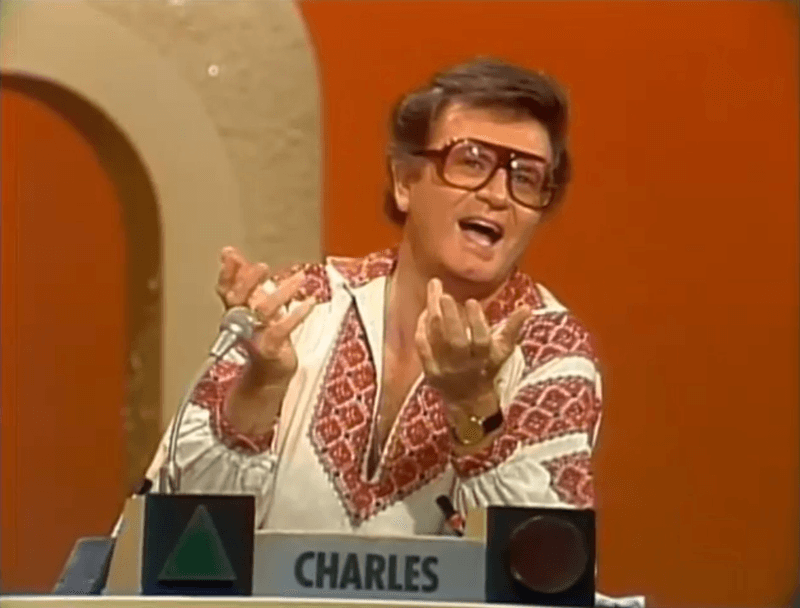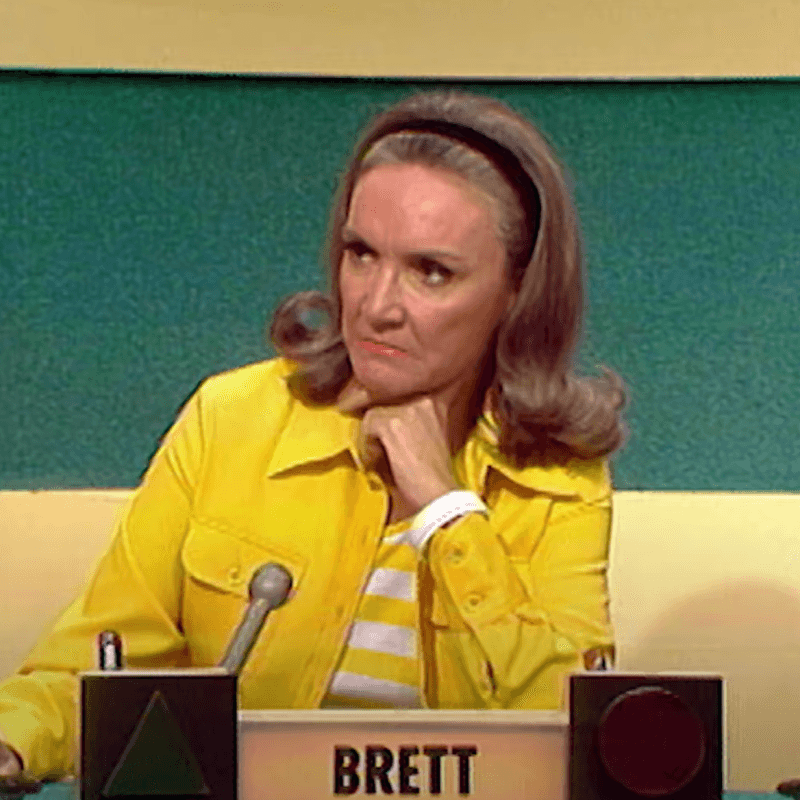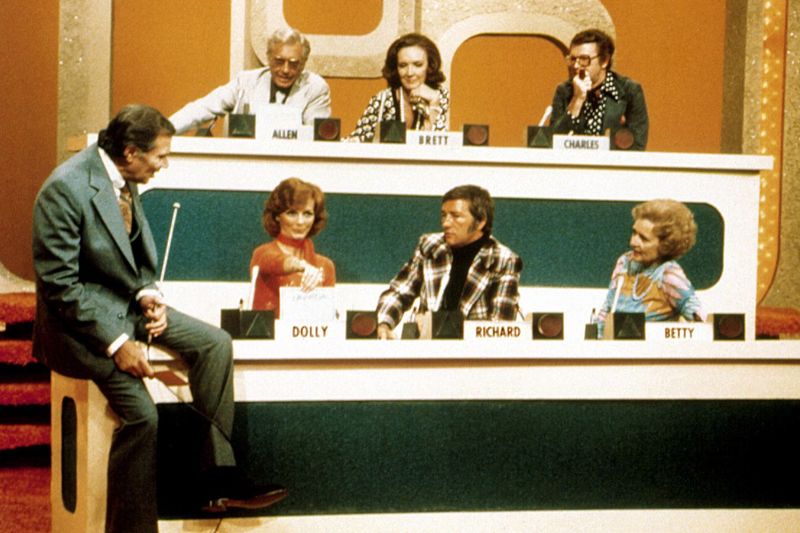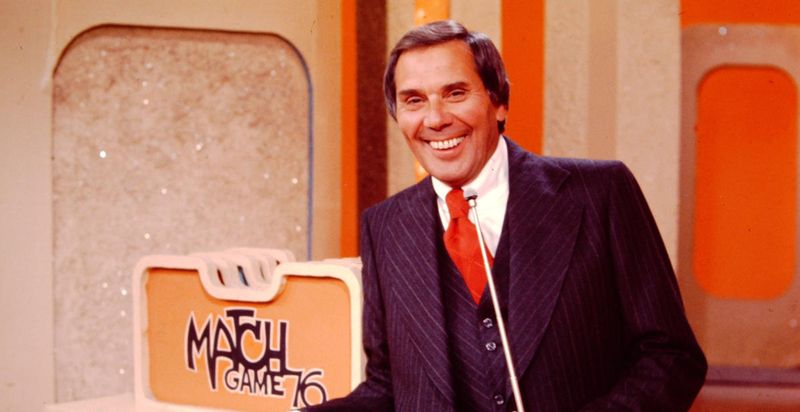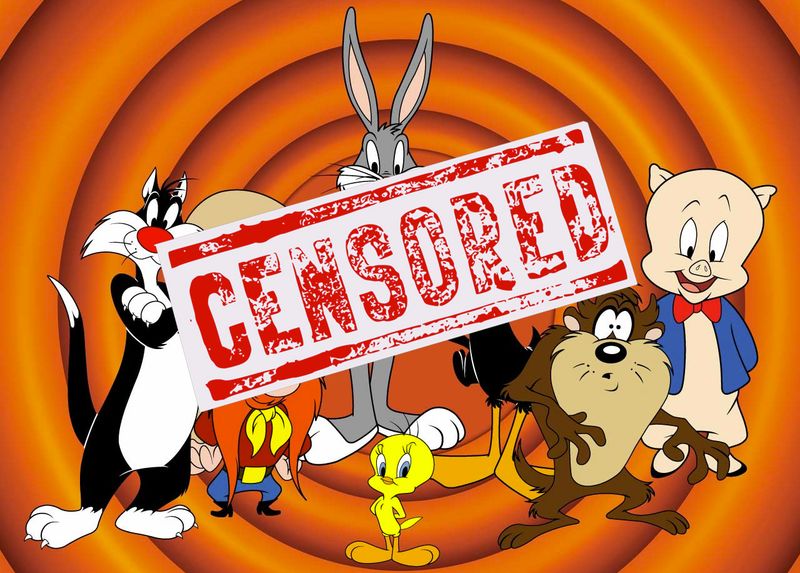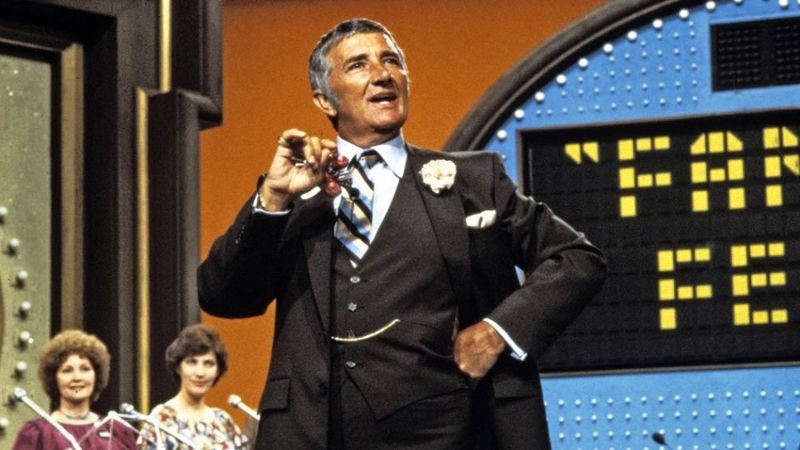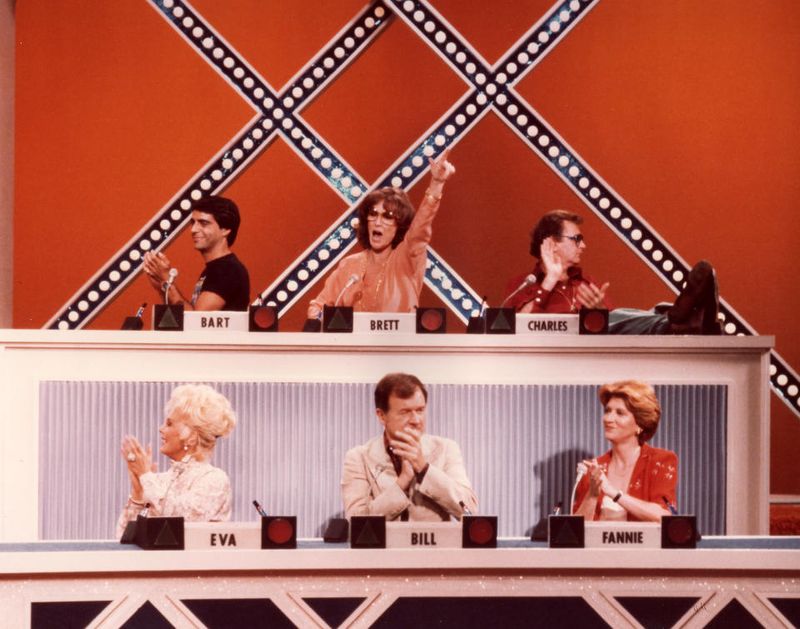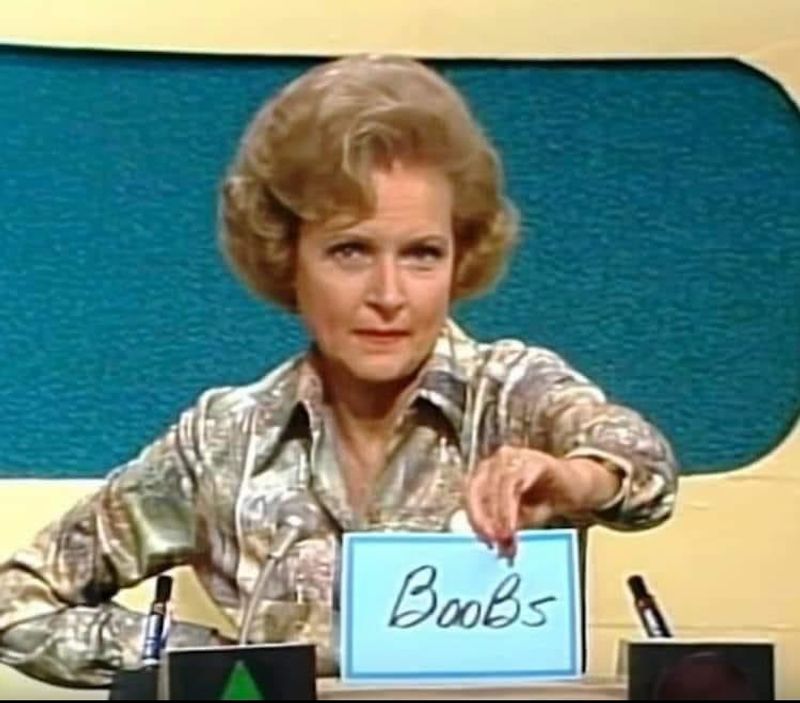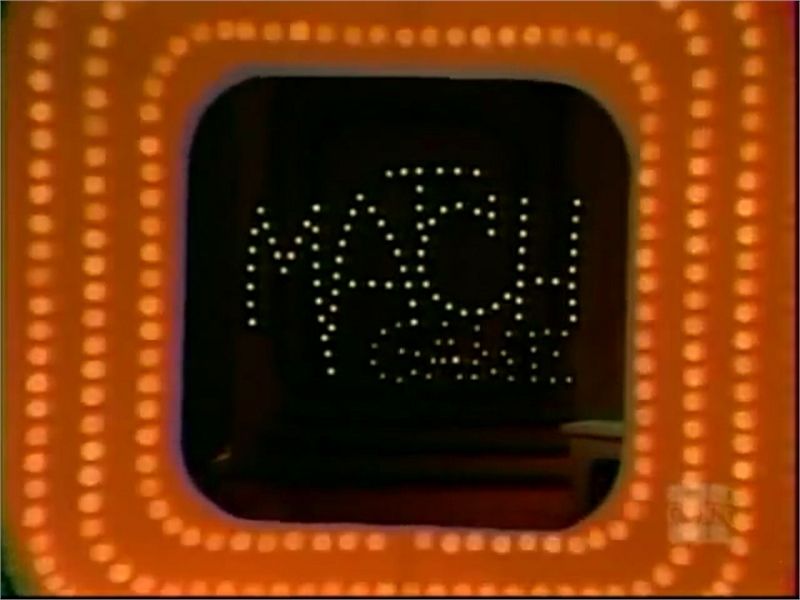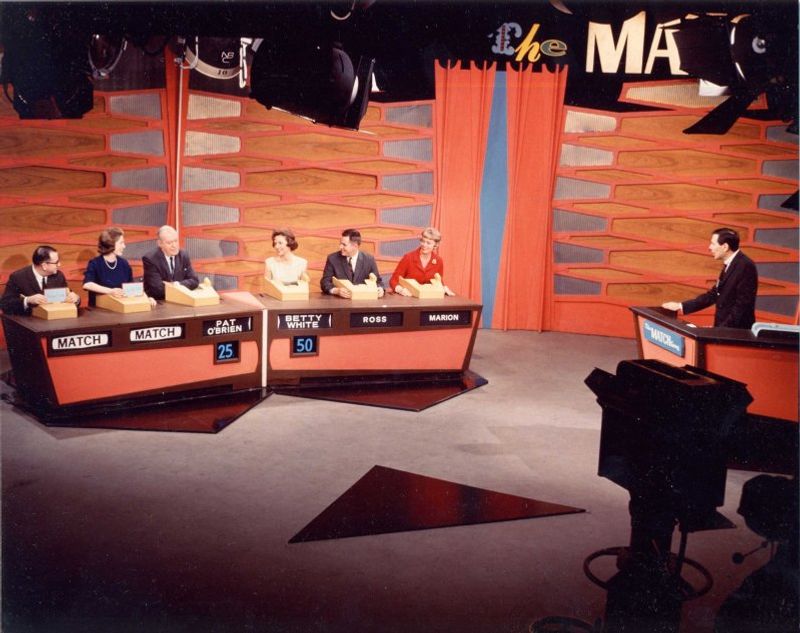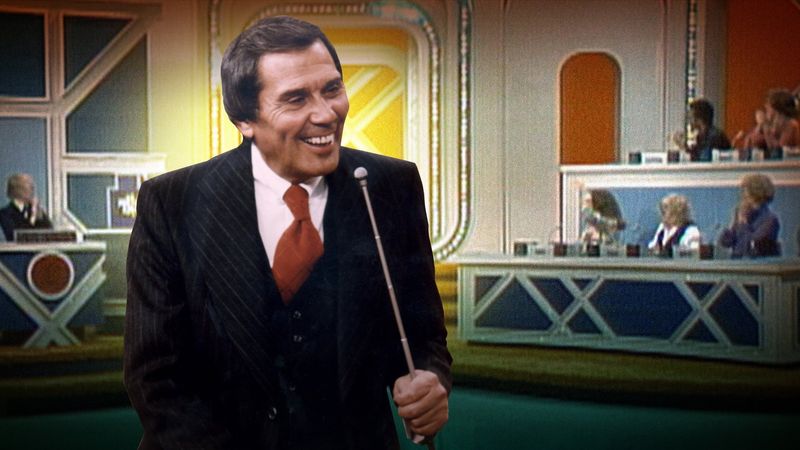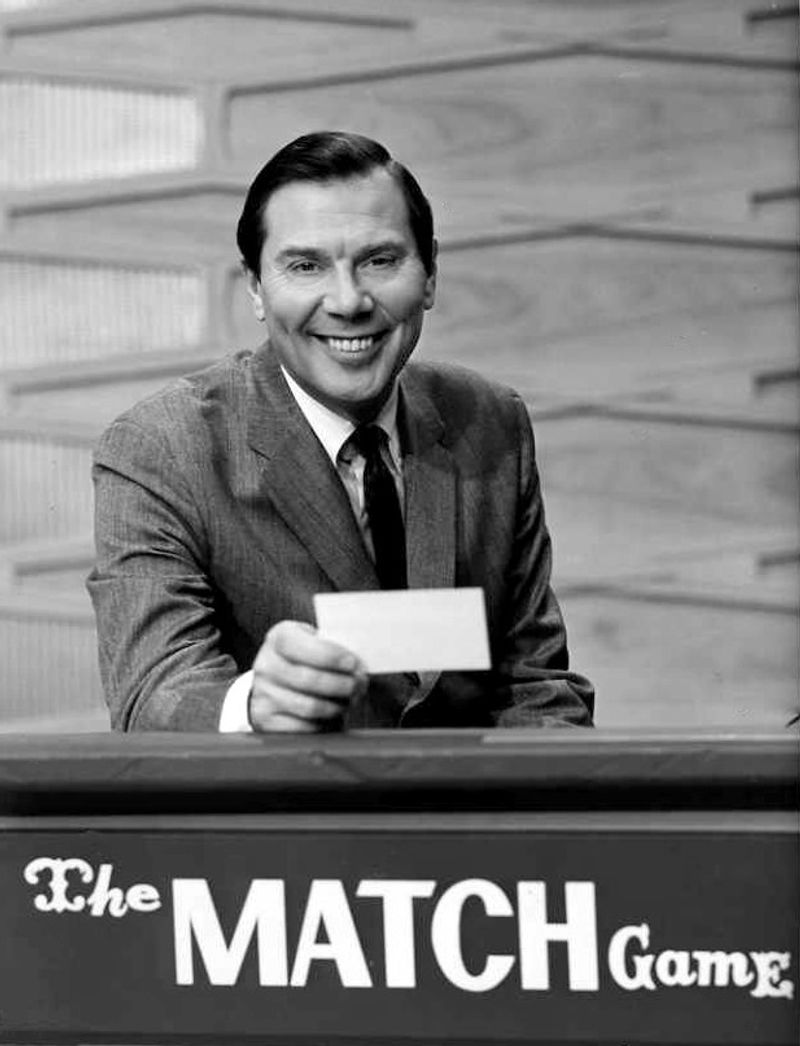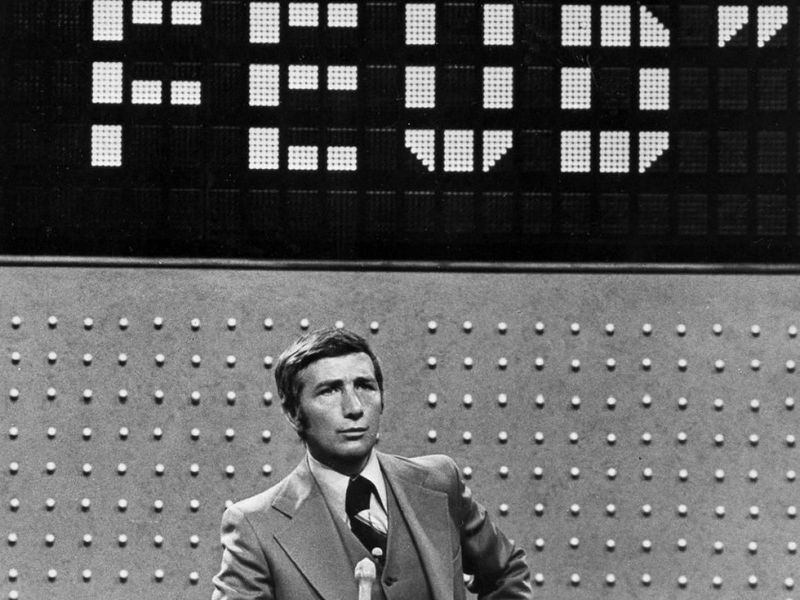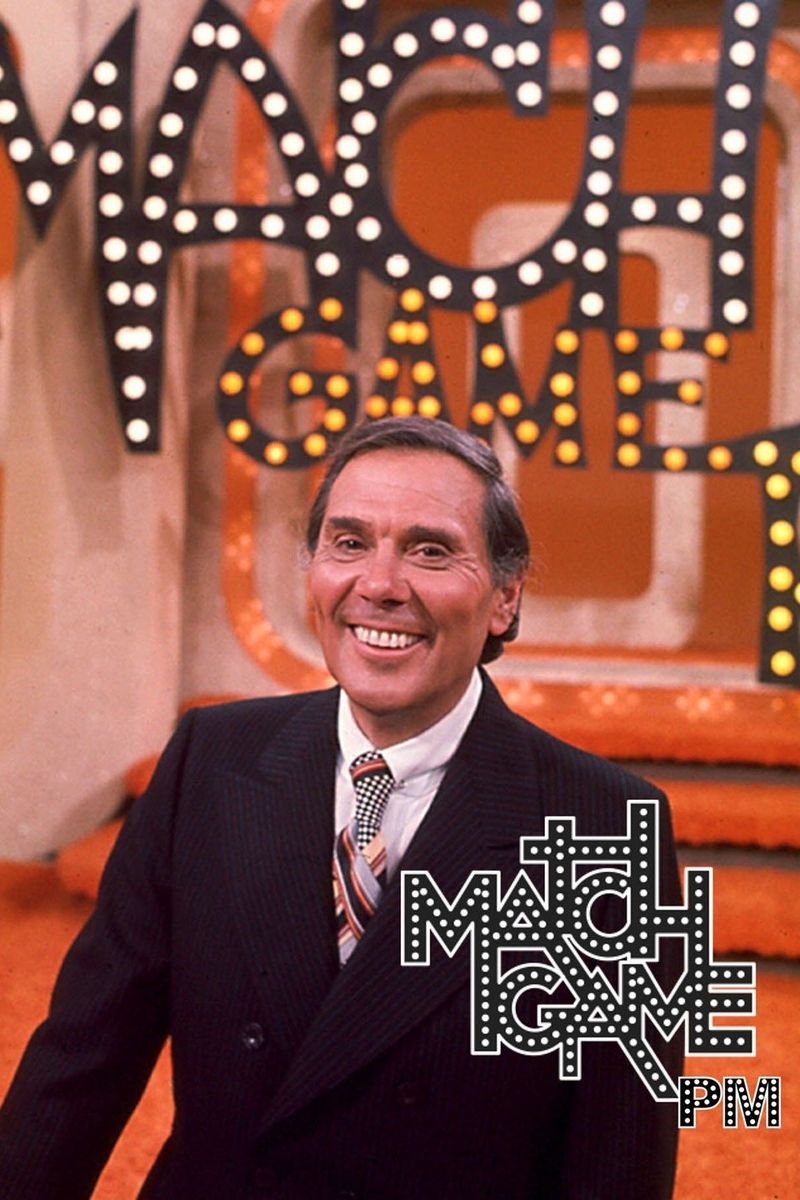The Match Game was a game show phenomenon that captured the carefree and unpredictable spirit of the 1970s. With its outrageous questions, celebrity panelists, and unexpected antics, it became a beloved classic. This blog post delves into 20 wild facts about this iconic show, revealing the behind-the-scenes chaos and humor that made it unforgettable.
1. Gene Rayburn’s Mic Was Basically a Fishing Pole
Gene Rayburn’s iconic microphone wasn’t your average mic. It was long, skinny, and looked hilariously like a fishing pole. Imagine Gene casting lines of wit and humor as he engaged with contestants and panelists. The microphone was intentionally designed to be quirky, setting the tone for the show’s playful atmosphere. It became a part of the show’s identity, as recognizable as Gene’s own charismatic presence. The mic added to the charm and chaos of Match Game, making it a memorable part of television history. Fans remember it fondly as a symbol of the show’s unique style.
2. The Panelists Were Almost Always Buzzed
The Match Game panelists didn’t just rely on their wit; backstage, the drinks flowed freely, loosening tongues and creating a buzzed sense of camaraderie. This wasn’t just a game show; it was a cocktail party on camera. The tipsiness added an unpredictable layer, with celebrities delivering hilariously off-the-wall answers. This boozy backdrop contributed to the show’s reputation for controlled chaos. The panelists, often in high spirits, turned the show into a lively spectacle. Viewers loved watching the antics unfold, as humor and mischief blended seamlessly on screen.
3. Charles Nelson Reilly Wasn’t Acting—That Was Just Him
Charles Nelson Reilly wasn’t putting on a character; his theatrical and flamboyant personality shone through naturally. Known for his sarcastic humor and quick wit, Reilly essentially stole every scene he was in. His larger-than-life presence brought a unique flair to the show, making him a fan favorite. Reilly’s genuine personality and comedic timing contributed significantly to the show’s charm. His antics and facial expressions were as unpredictable as the questions themselves, keeping audiences entertained. Reilly’s authentic self made him an unforgettable part of Match Game’s legacy.
4. Brett Somers Was a Late Addition—And She Stole the Show
Brett Somers joined Match Game as a favor to her then-husband, Jack Klugman, but her sharp wit and distinctive style soon made her a standout. With her trademark large glasses and quick humor, she became a beloved panelist. Somers’ ability to banter playfully with Gene Rayburn and other panelists added layers to the show’s dynamic. Her presence brought an extra spark, and audiences adored her for it. Despite being a late addition, Brett left a lasting impression, and her chemistry with Charles Nelson Reilly became iconic.
5. It Was Once the Highest-Rated Show on Daytime TV
In the mid-1970s, Match Game wasn’t just popular—it was the highest-rated show on daytime TV. Viewers tuned in religiously, drawn by the show’s unpredictable humor and celebrity panelists. This wasn’t just another game show; it was a cultural phenomenon that dominated its time slot, beating out popular soaps and talk shows. The show’s success highlighted its unique appeal, with its blend of spontaneity and star power. Match Game’s rise to the top of the ratings chart was a testament to its entertaining format and charismatic host, Gene Rayburn.
6. The Show Was Basically Controlled Chaos
Controlled chaos might be the best way to describe Match Game. The show thrived on unscripted moments, with Gene Rayburn, panelists, and contestants often going off-script. This unpredictability led to some of the most memorable and hilarious moments on television. The dynamic interactions between Gene and the panelists created a lively atmosphere that viewers couldn’t resist. The format allowed for spontaneous humor and unexpected twists, making every episode a new adventure. This blend of chaos and control was key to the show’s enduring popularity.
7. It Got Censored. A Lot.
With risqué jokes and double entendres flying, Match Game often danced on the edge of what was acceptable for daytime TV. Producers frequently found themselves bleeping out inappropriate language and snipping segments before airtime. This censorship became part of the show’s charm, as it pushed boundaries while maintaining a sense of humor. The audience loved the cheeky nature of the show, and the playful innuendos became a signature element. Despite the censorship, or perhaps because of it, the show remained a favorite among viewers who appreciated its daring humor.
8. Richard Dawson Started as a Star—Then Turned Sour
Richard Dawson’s charm was undeniable, and he quickly became a beloved star on Match Game. However, his tenure wasn’t without drama. As his popularity soared, Dawson sought more control over the show, leading to tensions with producers and other panelists. Eventually, his ambitions led him to leave Match Game for Family Feud. Dawson’s departure marked the end of an era, but his early contributions helped shape the show’s identity. His quick wit and engaging presence made him a standout panelist, and fans remember him fondly despite the later conflicts.
9. Contestants Weren’t Picked for Brains
Match Game contestants weren’t necessarily the sharpest tools in the shed, and that was by design. Producers sought individuals with personality and flair over intellect. This approach meant that quick wit or a quirky demeanor often trumped book smarts. Contestants were chosen for their ability to entertain and engage with the unpredictable antics of the panelists. This choice added another layer of humor, as contestants’ outrageous answers sometimes left audiences in stitches. The blend of lively contestants and celebrity panelists made for a perfect comedic storm.
10. It Revived the Careers of Fading Celebs
For many celebrities, Match Game was more than just a gig—it was a career revival. Actors like Fannie Flagg and Nipsey Russell found renewed fame by showcasing their comedic talents on the panel. The show offered a platform for fading stars to connect with new audiences, proving that humor could reignite careers. The exposure on Match Game allowed celebrities to reinvent themselves and capture the public’s imagination once more. This rejuvenation of careers was a testament to the show’s influence and its ability to spotlight genuine talent.
11. “Boobs” Was the Most Popular Answer. Really.
In the cheeky world of Match Game, certain answers took on a life of their own. “Boobs” became one of the most frequently given responses, delighting audiences with its boldness. The show’s fill-in-the-blank format lent itself to risqué and humorous answers, and “Boobs” embodied the playful spirit of the game. Panelists and contestants alike embraced the fun, often giggling their way through answers that toed the line. This recurring answer became a running joke, adding to the show’s legacy of humor and irreverence.
12. It Was a Reboot Itself
The Match Game of the 1970s was actually a reboot of a much tamer 1960s version. The original version didn’t have the same flair or humor, focusing more on straightforward gameplay. However, the revival in the ’70s revamped the format, introducing more innuendo and celebrity-driven chaos. This overhaul transformed the show into a lively and outrageous hit, far removed from its subdued predecessor. The new version’s success highlighted the power of reinvention, proving that a fresh approach could breathe new life into a classic format.
13. It Wasn’t Supposed to Be So Risqué
Match Game’s risqué nature wasn’t part of the original plan. Executives envisioned a family-friendly game show, but the playful interpretation by the host and panelists took it in a different direction. Double entendres and suggestive humor became a hallmark, much to the delight of the audience. The unexpected deviation from the original vision added to the show’s charm. Match Game’s ability to balance cheeky humor with genuine fun made it a standout, despite—or perhaps because of—its unexpected risqué twists. The playful misdirection became a defining feature.
14. It Featured Some Truly Bizarre Questions
Match Game was known for its outrageously bizarre questions. These weren’t your run-of-the-mill queries; they were crafted to elicit laughter and unexpected answers. Questions like “Mary liked to pour gravy on John because it made him taste like ___” left panelists and audiences giggling. The absurdity of the questions was part of the fun, allowing for creative and humorous answers. This quirky approach kept the show fresh and engaging, ensuring that no two episodes were ever the same. The bizarre questions became a beloved hallmark of the game.
15. It Created an Entire Era of Dirty Daytime TV
Match Game didn’t just redefine game shows; it paved the way for an entire era of adult-themed daytime television. Its success opened doors for shows like Hollywood Squares and Family Feud, which embraced similar risqué humor. The show’s blend of comedy and innuendo set a new standard, influencing programming choices across networks. Match Game’s impact was felt far and wide, sparking a trend that would shape the landscape of television for years. This pioneering spirit in pushing boundaries contributed to the show’s lasting legacy.
16. There Was a Huge Blackout in 1977—And They Kept Filming
In 1977, a massive blackout hit while Match Game was filming, plunging the set into darkness. Instead of halting production, the cast and crew used the opportunity to entertain. Panelists cracked jokes, and the audience enjoyed the unexpected turn of events. This adaptability showcased the show’s spirit, turning a potential disaster into a memorable episode. The impromptu humor during the blackout highlighted the panelists’ quick thinking and camaraderie. This ability to roll with the punches endeared the show even more to its fans.
17. Viewers Loved the Banter More Than the Game
For Match Game fans, the real attraction wasn’t the competition—it was the banter. The witty exchanges between host Gene Rayburn and the panelists provided endless entertainment. Viewers tuned in not just for the game but for the hilarious and unexpected interactions. The lively conversations and spontaneous jokes created a dynamic viewing experience. This focus on humor over winning highlighted the show’s unique appeal. Match Game’s ability to prioritize laughter and camaraderie over traditional gameplay set it apart and cemented its place in television history.
18. The Show Helped Launch Family Feud
Richard Dawson’s success on Match Game directly led to his hosting role on Family Feud. His charm and humor on the panel made him a standout, catching the attention of producers. This transition marked the beginning of another successful chapter in his career. Dawson’s engaging presence on Match Game laid the groundwork for his future hosting gigs. The connection between the two shows exemplified Match Game’s influence on television programming. Dawson’s move to Family Feud only increased his popularity, proving that Match Game was a launchpad for talent.
19. It Was So Popular, They Made Nighttime and Syndicated Versions
The immense popularity of Match Game led to the creation of nighttime and syndicated versions. At one point, the show aired multiple times a day, coast to coast, catering to a wide and eager audience. This expansion reflected the demand for more of the show’s unique brand of humor and entertainment. The various versions ensured that fans could get their fix, whether during the day or in the evening. The proliferation of Match Game across different formats underscored its status as a cultural phenomenon.
20. It’s Still Inspiring Game Shows Today
The influence of Match Game is evident in today’s game shows. Its freewheeling format and emphasis on humor have inspired modern hits like Hollywood Game Night and Jimmy Fallon’s party games. The show’s legacy lives on through these contemporary adaptations, which borrow elements of the original’s playfulness. Match Game’s ability to blend celebrity antics with engaging gameplay set a precedent that continues to resonate. Its impact on the genre is undeniable, proving that its spirit of fun and spontaneity is timeless. The show’s enduring influence is a testament to its brilliance.
